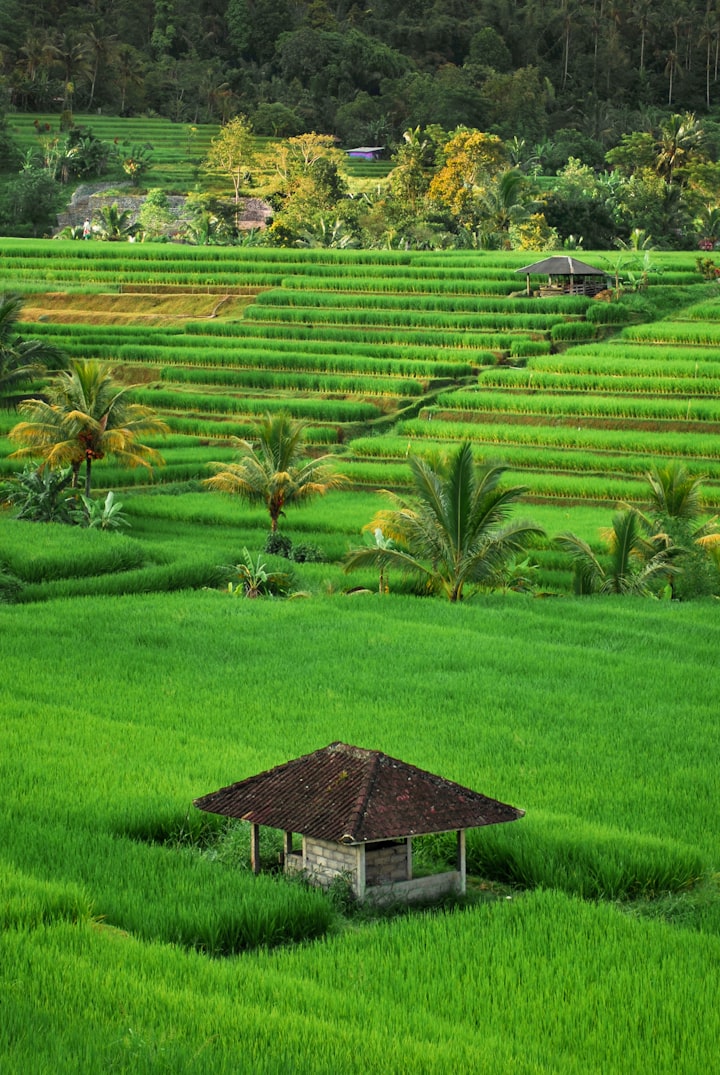Organic Farming : A Way Of Life
Grow your own food

What is Organic Farming
In the past two decades, the phrase "Organic Farming" has become so popular around the world. What exactly it is?
Actually there is nothing new about organic farming, it has been the traditional way of farming that our forefathers have been following for thousands of years.
Ideally, the word farming intrinsically means that it should be organic. On the other hand, due to technological development which happened in the agricultural
industry and movements such as Green Revolution have changed the way we do farming in the last few decades.
One cannot imagine farming without using chemical fertilizers, pesticides, Genetically Modified Seeds, irrigation technologies and much more. These technological
dependencies have made farming highly inorganic or artificial. Over the years, agricultural sector has become an million dollar industry but farmers have become
poorer and many have been forced to move out of agriculture due to heave losses. Hence, organic farming has been emphasized by experts to bring back the glory of
traditional farming. We can look out the ways of doing organic farming and its advantages for health & environment.
To Start with, organic farming can be done in acres of land, or a small plot in your home garden or even with the space available in your terrace.
The ideas is to use predominantly traditional seeds without any chemical fertilizers/pesticides, whereas Homemade natural fertilizers can be used to grow
vegetables, spices etc., Natural fertilizers can be made out of vegetable wastes from kitchen and can be used to promote the growth of plants organically.
If you are farming in a larger area, you can also try raising domestic animals like cow, whose wastes can be used as natural fertilizer.
In this way organic farming reduces the dependencies with technology and requires more manual effort.
Even plants grown organically are bound to get infected by pests, which can be overcome by using some natural pesticides. Moreover, organic plants are much more resistant
to pests than the hybrid ones.
It is the simplest and easiest form of farming.
When you start doing farming in an oragnic way, you completely depend only on nature instead of corporates and eventually you understand the soil.
Once you understand the soil in the due course of time you understand the nature altogether. Mother nature will definitely satisfy your needs.
The advantages of organic farming include the following
BioDiversity: Organic farms promotes biodiversity, as they often use a variety of crops and rotate them to improve soil health. Biodiversity helps to
preserve the ecological balance and also solves one crop dependency problem.
Micro Climate: Organic farms creates a micro level pleasant environment around the place and keeps the farm fertile.
The pleasant nature of the organic farm cannot be felt in the adjacent farms which are not maintained organically.
Health benefits: Organic produce is free from chemical pesticides and fertilizers, which can be harmful to human health if consumed in large quantities.
Organic meat and dairy products come from animals grown in farms that have not been treated with hormones or antibiotics.
Taste and quality: Many people believe that organic produce tastes better and is of higher quality than conventionally grown produce. This is because organic farming methods allow the produce to ripen naturally, resulting in a more flavorful product.
Cost benefits: Organic farming methods can be more cost-effective in the long-term, as they reduce the need for expensive chemical inputs and can improve soil health.
Community benefits: Organic farms often provide jobs and support local communities, as they rely on manual labor and are often small, family-run operations.
Animal welfare: Organic farming standards also require farmers to provide animals with better living conditions, including access to pasture, which can improve their overall health and well-being.
Organic farming jobs are becoming increasingly popular among young people as more and more consumers are looking for food that is grown without the use of synthetic chemicals or genetically modified organisms. These jobs often offer the opportunity to work outside in nature and to be a part of a sustainable food system. Some popular positions in organic farming include farm hands, crop managers, and sales representatives.
Organic farming is not a job, but a way of life for many people. There are people who do it only to produce chemical free food to the society.
On the other hand, people who consider farming as a business, majorly end up loosing their capital.
Remember food is our basic necessity and we should grow it for ourselves for a sustainable living.
Happy Growing Your Own Food!!!!
About the Creator
Arun Ramasamy
Nature Lover, Just go with the flow, techno freek.
Do what you can.. don't when you cannot.






Comments
There are no comments for this story
Be the first to respond and start the conversation.